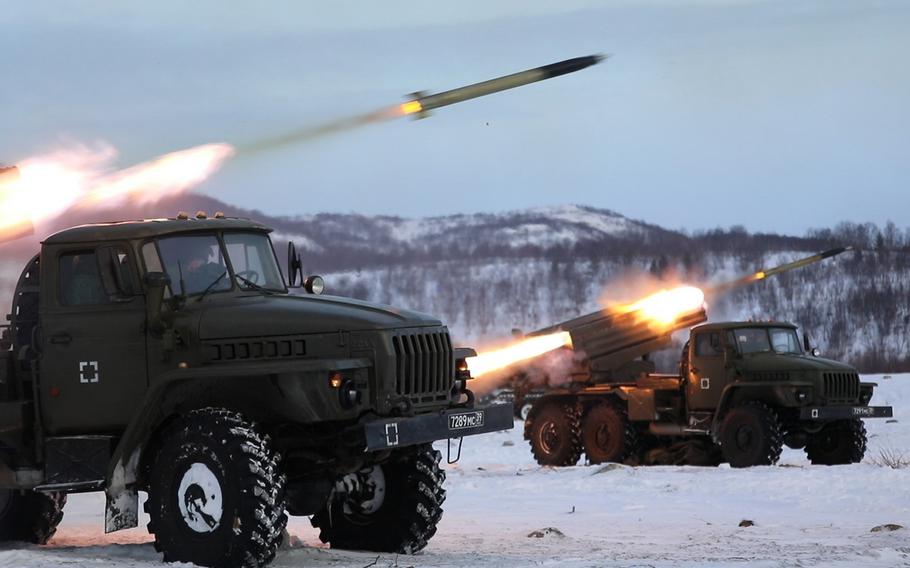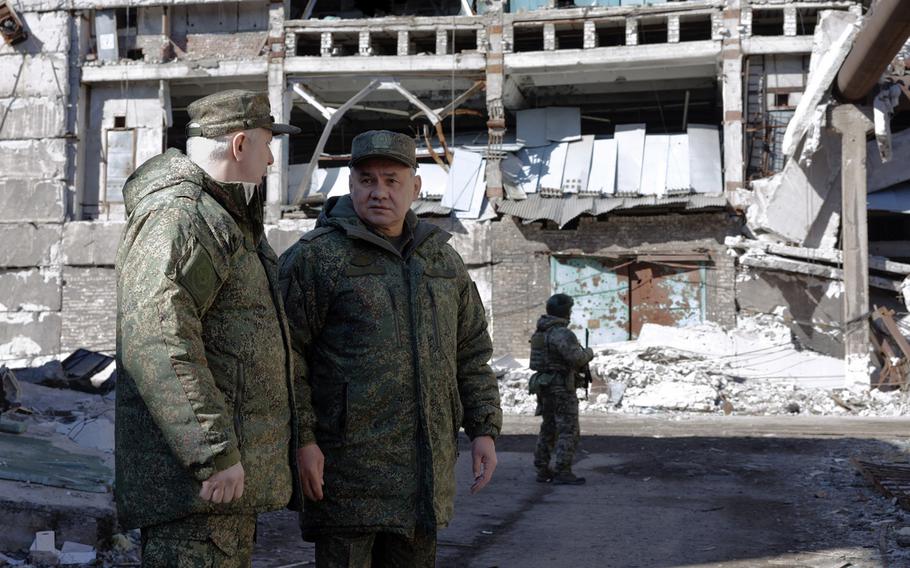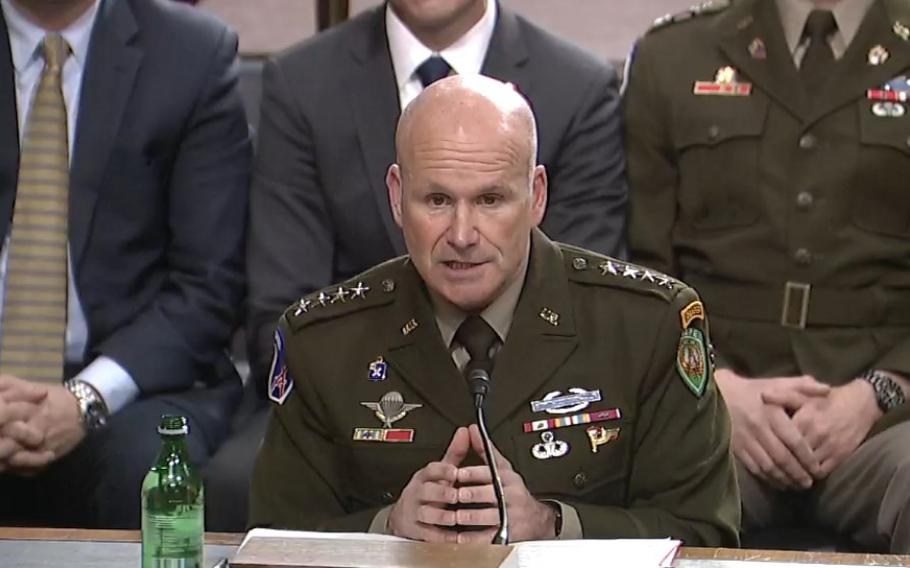
Russian artillery units conduct combat coordination training in Russia's polar region in January, as depicted by the Russian Defense Ministry. The head of U.S. forces in Europe has cautioned that NATO remains under a significant threat from the Russian military. (Russian Defense Ministry)
STUTTGART, Germany — U.S. European Command’s Gen. Christopher Cavoli said Russia’s total military force has sustained less damage during the war in Ukraine than its battlefield failures might suggest, and that some of its capabilities remain untouched since last year’s invasion.
Cavoli, speaking Sunday during a security conference in Estonia, said Russian air power, sea power and cyberwarfare units have continued mostly intact in the time since Moscow’s full-scale attack in February 2022.
“It's very easy to look and to think that the Russian military has collapsed or is in dire trouble, but in fact, it's been uneven,” Cavoli said during the Lennart Meri Conference in Tallinn.
During more than a year of fighting, Russia’s army has been hard hit. The U.S. estimates that Russian casualties have been as high as 100,000 killed or injured in just the last several months of the war alone. Yet Moscow has been able to replenish its ground force ranks, Cavoli said.

Russian Defense Minister Sergei Shoigu, right, shown in an undated photo released by the Russian Defense Ministry April 3, 2023, visits Russian troops deployed in occupied Ukrainian territory. While Russian ground forces have been eroded by the war, they have been able to replenish their ranks, said U.S. European Command’s Gen. Christopher Cavoli during a security conference Sunday. (Russian Defense Ministry)
"The ground forces are greatly eroded. They have run into big problems. … On the other hand, they've also ingested a lot of people,” Cavoli said. “And you know, the Russian army, the ground force, today is bigger than it was at the beginning of this conflict.”
Meanwhile, Russia’s air force has lost fewer than 100 fighters and bombers, with about 1,000 such aircraft remaining, he said.
“The navy has lost almost nothing, cyber has lost nothing, space lost nothing,” Cavoli said. “So really, when we talk about the Russian military, we have to study it across all domains. And we have to be ready to deal with the Russian military into the future in all domains."
Cavoli’s comments come as the U.S. and its allies in Europe prepare for a NATO summit this summer that will focus on how the alliance’s defense plans for the Continent need to be enhanced to deal with the threat posed by Russia.
Still, there is an ongoing debate about whether Russia’s military failures in Ukraine are an indication that the country poses less of a threat to the alliance than previously thought.

U.S. Army Gen. Christopher G. Cavoli, the head of U.S. European Command, speaks to the Senate Armed Services Committee on April 27, 2023. Talking Sunday during a security conference in Estonia, Cavoli reiterated the need for caution when assessing Russia's remaining military reserves and capabilities. (European Command)
At the outset of the war, many security analysts expected a quick victory for Moscow. But Ukraine’s effectiveness on the battlefield and an influx of Western arms turned the tables on the larger Russian force.
A bipartisan group of senators in March called on the Pentagon to update its requirements for confronting Russia in Europe, citing Moscow’s failures in Ukraine as the reason.
“Maintaining outdated plans and assumptions represents a potential threat not only to our objectives in Europe, but also to our allocation of resources in dealing with our security interests elsewhere in the world,” the lawmakers wrote.
The senators, which included Army veteran Sen. Tom Cotton, R-Ark., and Sen. Richard Blumenthal, D-Conn., said Russia casualties in the range of 200,000 troops overall and the large-scale loss of Russian battle tanks and other fighting vehicles suggest the Russian military has been significantly degraded.
“Russia’s military is not the same as it was in 2021, and shows no signs of returning to its pre-invasion state in the near term. Our European warfighting requirements should reflect this new reality,” the senators wrote.
Cavoli, however, said Russia maintains a wide range of military firepower that demands allies stay on guard.
"How long will it take (Russia) to rebuild? The question is, how long will it take to rebuild to do what? They're capable of doing things today,” Cavoli said. “I think there's not going to be a light switch that goes on or off now. We need to know we need to be prepared.”